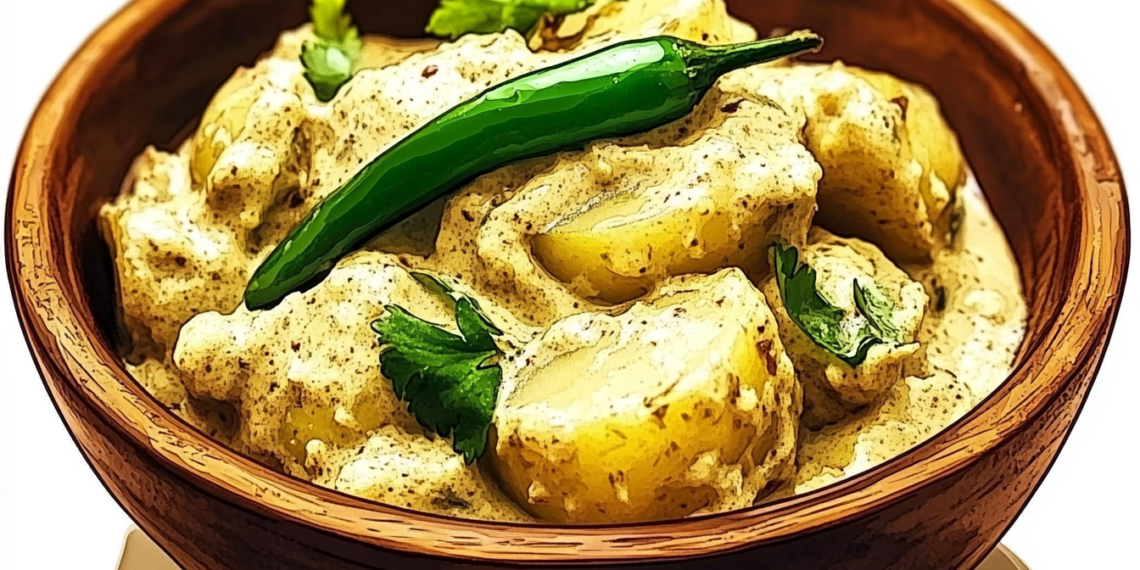The Mystique of Posto: A Bengali Staple
Growing up in a Bengali household, poppy seeds—or posto, as we call them—were as ubiquitous as the monsoon rains. They were in our curries, our snacks, even our desserts. Yet, whenever I mentioned posto to friends from other parts of India, I was met with blank stares. In Bengal, posto is not just an ingredient; it’s a cultural icon, a culinary tradition, and a mystery wrapped in a nutty, slightly sweet flavor.
But how did this humble seed become such a cornerstone of Bengali cuisine? The answer, like the history of Bengal itself, is layered and complex.
A Mughal Gift or a Bengali Original?
Some historians argue that posto was a gift from the Mughals, those connoisseurs of rich, elaborate cuisine who ruled India in the 16th and 17th centuries. The Mughals brought with them a treasure trove of spices and cooking techniques from Central Asia and the Middle East, and poppy seeds may have been part of that culinary caravan.
Others, however, believe that posto was already a part of traditional Bengali cuisine long before the Mughals arrived. Perhaps the Mughals simply helped popularize it, adding their own flair to an already beloved ingredient. Whatever the truth, posto has firmly rooted itself in the Bengali kitchen, appearing in everything from creamy curries to crispy fritters.
The Dark Side of Poppy: Opium and Empire
Now, let’s address the elephant in the room: opium. Yes, the same poppy plant that gives us posto also produces opium. And yes, the British East India Company saw dollar signs (or rather, pound sterling signs) in that connection.
In the 18th and 19th centuries, the British cultivated opium in Bengal on an industrial scale, using poppy seeds and other raw materials to produce the drug. They then shipped it off to China, where it was sold illegally, sparking the infamous Opium Wars. These conflicts, driven by greed and imperialism, left a lasting scar on China’s economy and society.
But what happened to the poppy fields after the British left India in 1947?
From Opium to Medicine: Poppy in Modern India
After independence, the Indian government took control of opium production, setting up the Opium and Alkaloid Works in Ghazipur, Uttar Pradesh. Today, India is one of the few countries authorized by the International Narcotics Control Board to produce opium for medicinal purposes. The poppy gum is processed into morphine and other pain medications, ensuring that the plant’s legacy is one of healing rather than harm.
That said, illegal opium cultivation remains an issue in some parts of India, particularly in Manipur, where the plant is used both medicinally and recreationally. Efforts to curb this practice have been slow, hampered by economic and social challenges.
Aloo Posto: A Dish That Tells a Story
Despite its complicated history, posto remains a beloved ingredient in Bengali cuisine. One of its most iconic dishes is Aloo Posto—a simple yet soul-satisfying combination of potatoes and poppy seed paste. It’s creamy, nutty, and just a little bit spicy, the kind of dish that feels like a warm hug from your grandmother.
Here’s how you can make it at home:
Recipe: Aloo Posto (Potatoes in Poppy Seed Gravy)
Ingredients:
- 4 medium-sized potatoes, peeled and diced
- 1/2 cup white poppy seeds
- 1/2 tsp nigella seeds (kalonji)
- 2 green chilies
- 1/4 tsp turmeric powder
- 1/2 tsp red chili powder
- 1 tbsp mustard oil (or vegetable oil, if you must)
- Salt to taste
- Water
Directions:
- Soak and Grind: Soak the poppy seeds in water for at least an hour, then grind them into a fine paste using a mixer or food processor.
- Temper the Spices: Heat the oil in a pan over medium heat. Add the nigella seeds and dried red chilies, letting them sizzle and release their aroma.
- Cook the Potatoes: Toss in the diced potatoes, coating them with the spices. Cook until they start to turn golden brown.
- Add the Paste: Stir in the poppy seed paste, turmeric powder, red chili powder, and salt. Mix well.
- Simmer: Add enough water to cover the potatoes, slit the green chilies, and drop them in. Bring to a boil, then reduce the heat and let it simmer for 15-20 minutes, or until the potatoes are tender and the gravy has thickened.
- Serve: Let the dish rest for a few minutes, then serve hot with steamed rice or roti.
Why Aloo Posto Matters
Aloo Posto is more than just a dish; it’s a testament to the resilience and adaptability of Bengali cuisine. It’s a reminder that even the simplest ingredients can tell a story—one of culture, history, and identity.
So, the next time you sit down to a plate of Aloo Posto, take a moment to appreciate the journey of those tiny poppy seeds. From the fields of Bengal to your kitchen, they’ve traveled through centuries, empires, and revolutions to bring you a taste of home.
Final Thoughts: A Call to Action
If you’ve never tried posto, now’s the time. Whether you’re a seasoned cook or a kitchen novice, Aloo Posto is a dish that’s as forgiving as it is flavorful. And if you’re already a fan, why not experiment? Try adding posto to your favorite recipes—you might just discover a new culinary obsession.
So, what are you waiting for? Grab some poppy seeds, roll up your sleeves, and let’s get cooking. And when you do, don’t forget to share your creations with the world. After all, food is best when it’s shared.






